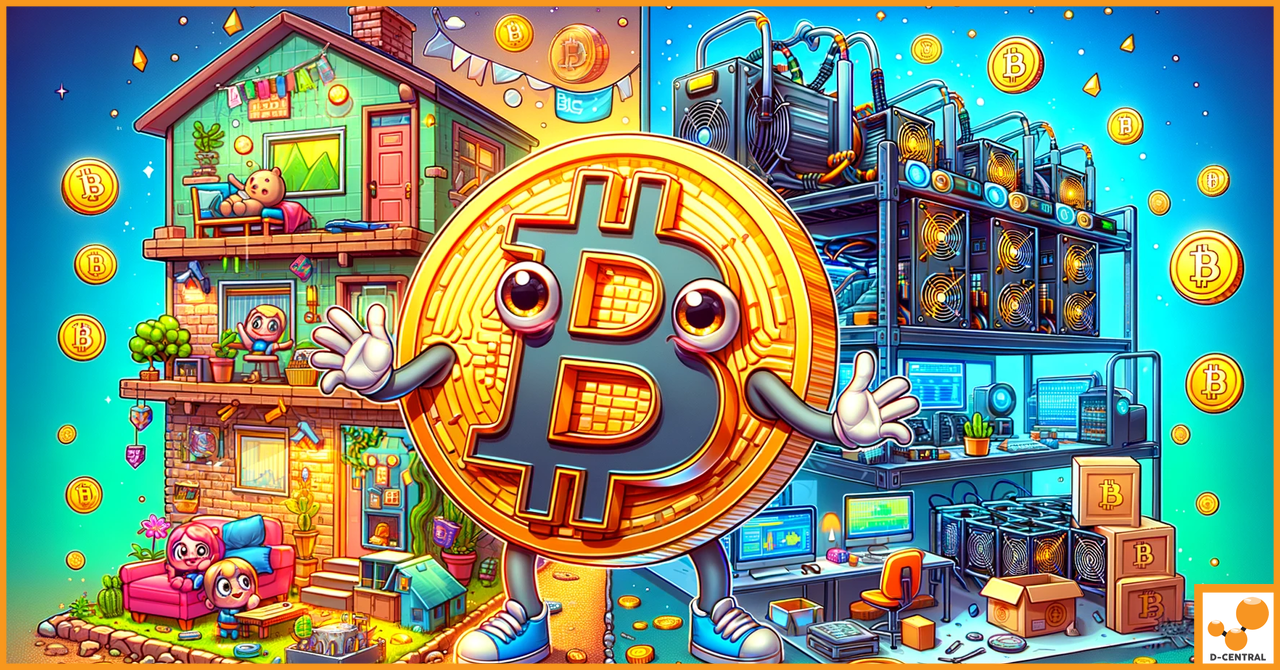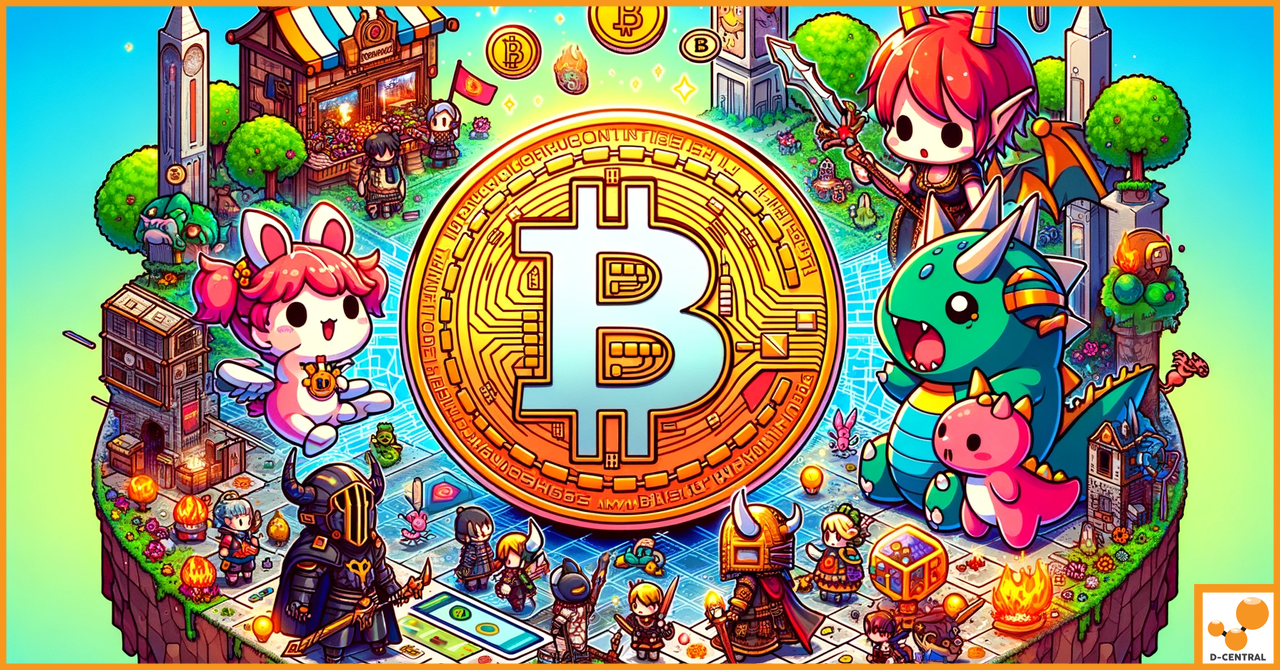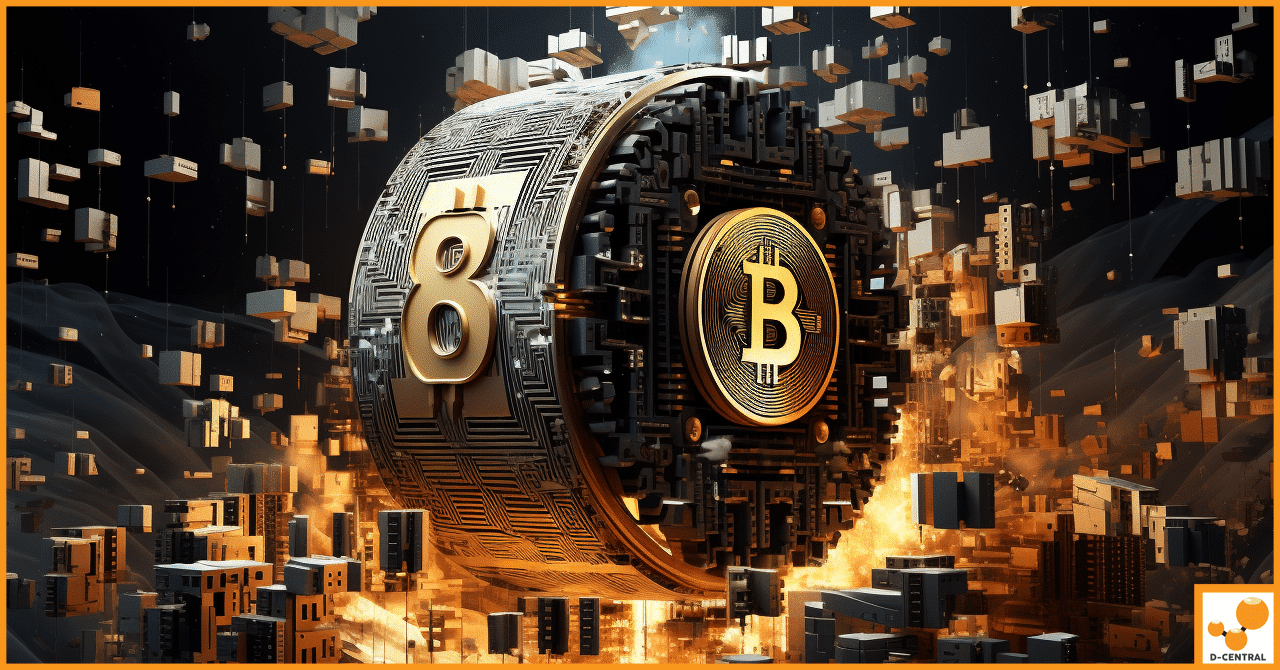
Complete Bitcoin Mining Rigs for Home and Commercial Use
Discover D-Central’s cutting-edge Bitcoin mining solutions designed for both home enthusiasts and commercial operations. Our high-quality, efficient, and easy-to-use mining
4479 Desserte Nord Autoroute 440, Laval, QC H7P 6E2

In the past two decades, the digital landscape has undergone a profound transformation, marked by the emergence and rapid evolution of digital currencies and virtual worlds. This metamorphosis is not just a technological revolution, but also a cultural and economic one, reshaping how we perceive value, interact, and even play. At the forefront of this change are Massively Multiplayer Online Role-Playing Games (MMORPGs), which have become more than mere platforms for entertainment; they have evolved into intricate worlds with their economies, mirroring many aspects of real-world financial systems.
The heart of this transformation is the rise of digital currencies, epitomized by Bitcoin. Launched in 2009, Bitcoin introduced a decentralized, blockchain-based digital currency that challenged traditional notions of currency and financial sovereignty. Its ascent sparked a wave of innovation and debate, leading to the creation of numerous other cryptocurrencies, each with unique features and value propositions.
MMORPGs, on the other hand, have been building virtual economies long before Bitcoin’s inception. In these sprawling digital universes, players engage in activities that mirror real-life economic behaviors – trading, earning, and spending virtual currencies unique to their gaming world. The principles of supply and demand, scarcity, and market dynamics play out daily in these realms, providing a practical, albeit virtual, education in economics.
This article aims to explore the intriguing parallels between the virtual economies of MMORPGs and the real-world economic systems, with a particular focus on Bitcoin. We will delve into how these digital realms have become more than just gaming platforms – they are breeding grounds for a new generation of digital natives who understand and appreciate the value of digital currencies and assets. By examining these virtual worlds, we can gain valuable insights into the potential future of Bitcoin, not just as a digital collectible but as a contender for the world’s next reserve currency.
The realm of Massively Multiplayer Online Role-Playing Games (MMORPGs) offers a rich tapestry of digital economies that mirror many aspects of real-world financial systems. Games like “World of Warcraft” and “Eve Online” are not just platforms for virtual adventure but also hubs of complex economic activity. In these digital universes, in-game economies play a pivotal role, offering insights into economic principles in a controlled, yet dynamic environment.
1. Overview of MMORPGs and In-Game Economies
2. Virtual Currencies in MMORPGs
3. Real-World Economic Principles in MMORPGs
Understanding these virtual economies provides a unique perspective on real-world economic principles. The controlled yet complex environment of MMORPGs offers a living laboratory to observe and learn economic behaviors, making these games not just entertainment but also educational platforms. They set the stage for comprehending the digital currency phenomenon, particularly Bitcoin, and its place in the broader context of digital and real-world economies.
In the digital realm, the concepts of value and scarcity take on new meanings, particularly in the context of MMORPGs and cryptocurrencies like Bitcoin. Both these virtual platforms demonstrate how digital scarcity can create value, but they manage it in fundamentally different ways.
1. Scarcity in MMORPGs
2. Bitcoin’s Scarcity Model
3. Perception of Digital Value
The parallel between digital scarcity in MMORPGs and Bitcoin underscores a significant shift in how value is perceived and managed in the digital age. While the methods of creating and managing scarcity differ, the underlying principles of supply and demand remain constant, shaping the digital economy in profound ways.
The transition from gaming economies to cryptocurrency is a natural evolution for many gamers, given the similarities in digital asset management and the virtual economy dynamics in both domains. This section explores this transition, highlights case studies of gamers who became cryptocurrency enthusiasts, and delves into the psychological and sociological factors that predispose gamers to be receptive to digital currencies.
1. From Gaming Economies to Cryptocurrency Investment
2. Case Studies of Gamers Turned Crypto Enthusiasts
3. Psychological and Sociological Factors
The intersection of gaming and cryptocurrency reveals a fascinating transition where virtual economies serve as a primer for understanding and engaging with the world of digital currencies. Gamers’ inherent skills in managing digital assets, their comfort with virtual environments, and their community networks make them uniquely positioned to be at the forefront of the cryptocurrency revolution.
The debate surrounding Bitcoin’s identity and role in the global economy is multifaceted, with some viewing it as a digital collectible akin to rare items in games, while others argue for its potential as a future global reserve currency. This section examines these perspectives and discusses the challenges and criticisms Bitcoin faces.
1. Bitcoin as a Digital Collectible
2. Bitcoin as a Future Global Reserve Currency
3. Challenges and Criticisms
Whether Bitcoin is destined to remain a digital collectible or emerge as a future global reserve currency depends on a variety of factors, including technological advancements, regulatory developments, and shifts in the global economic landscape. While it shares characteristics with rare items in virtual games, its potential as a reserve currency hinges on its ability to overcome challenges related to volatility, regulation, and sustainability.
In this exploration of digital economies through the lens of MMORPGs and Bitcoin, we’ve journeyed through the intricate parallels between virtual worlds and the emerging landscape of digital currencies.
Reflecting on the broader significance, digital economies, whether in virtual worlds or in the form of cryptocurrencies, are reshaping our understanding of value, trade, and economic interaction. They signal a shift towards a more interconnected, digitally fluent world.
As for the future of Bitcoin and digital currencies, lessons from MMORPGs suggest that their success and acceptance will hinge on balancing scarcity with accessibility, navigating regulatory landscapes, and ensuring sustainability. Whether as a niche digital asset or a mainstream financial instrument, the journey of Bitcoin and other digital currencies is indicative of a broader evolution in our global economic systems, where the virtual increasingly intersects with the real.
What role do MMORPGs play in the digital economy?
MMORPGs have developed intricate virtual economies that mirror real-world economic systems, showcasing economic principles like supply and demand, market dynamics, and inflation through in-game activities.
How has Bitcoin influenced the concept of digital currencies?
Introduced in 2009, Bitcoin revolutionized the concept of digital currency with its decentralized, blockchain-based system, challenging traditional currencies and sparking a wave of innovation in cryptocurrencies.
What is the relationship between MMORPG economies and Bitcoin?
Both MMORPGs and Bitcoin feature economies based on digital scarcity and value, with MMORPGs offering a practical education in economics and Bitcoin showing the potential for digital currencies in the real world.
How do MMORPGs manage scarcity?
MMORPGs manage scarcity by introducing rare items and controlling their availability, while Bitcoin’s scarcity is hardcoded with a finite supply of 21 million coins, creating digital value through limited availability.
Why might gamers be predisposed to cryptocurrency investment?
Gamers’ familiarity with virtual currencies, trading digital assets, and comfort in digital environments make them adept in skills transferable to cryptocurrency markets, making a natural transition to cryptocurrency enthusiasts.
Is Bitcoin considered a digital collectible or a future global reserve currency?
Opinions vary: some see Bitcoin as a digital collectible due to its scarcity and unique properties, while others believe it has the potential to become a future global reserve currency due to its trust, decentralization, and digital adoption.
What challenges does Bitcoin face in becoming a global reserve currency?
Bitcoin faces challenges including price volatility, unclear regulatory frameworks, legal hurdles, scalability issues, and environmental concerns related to its mining process.
How do digital economies signal a shift in economic interaction?
Digital economies exemplify a move towards a digitally fluent world, reshaping concepts of value and economic interaction, with cryptocurrencies like Bitcoin potentially leading a transition to digital financial systems.
DISCLAIMER: D-Central Technologies and its associated content, including this blog, do not serve as financial advisors or official investment advisors. The insights and opinions shared here or by any guests featured in our content are provided purely for informational and educational purposes. Such communications should not be interpreted as financial, investment, legal, tax, or any form of specific advice. We are committed to advancing the knowledge and understanding of Bitcoin and its potential impact on society. However, we urge our community to proceed with caution and informed judgment in all related endeavors.
Related Posts

Discover D-Central’s cutting-edge Bitcoin mining solutions designed for both home enthusiasts and commercial operations. Our high-quality, efficient, and easy-to-use mining

The world of cryptocurrency mining has evolved significantly since the early days of Bitcoin. With the advent of various digital

In the realm of cryptocurrencies, Bitcoin mining holds a pivotal role. This process involves powerful computers performing complex calculations to